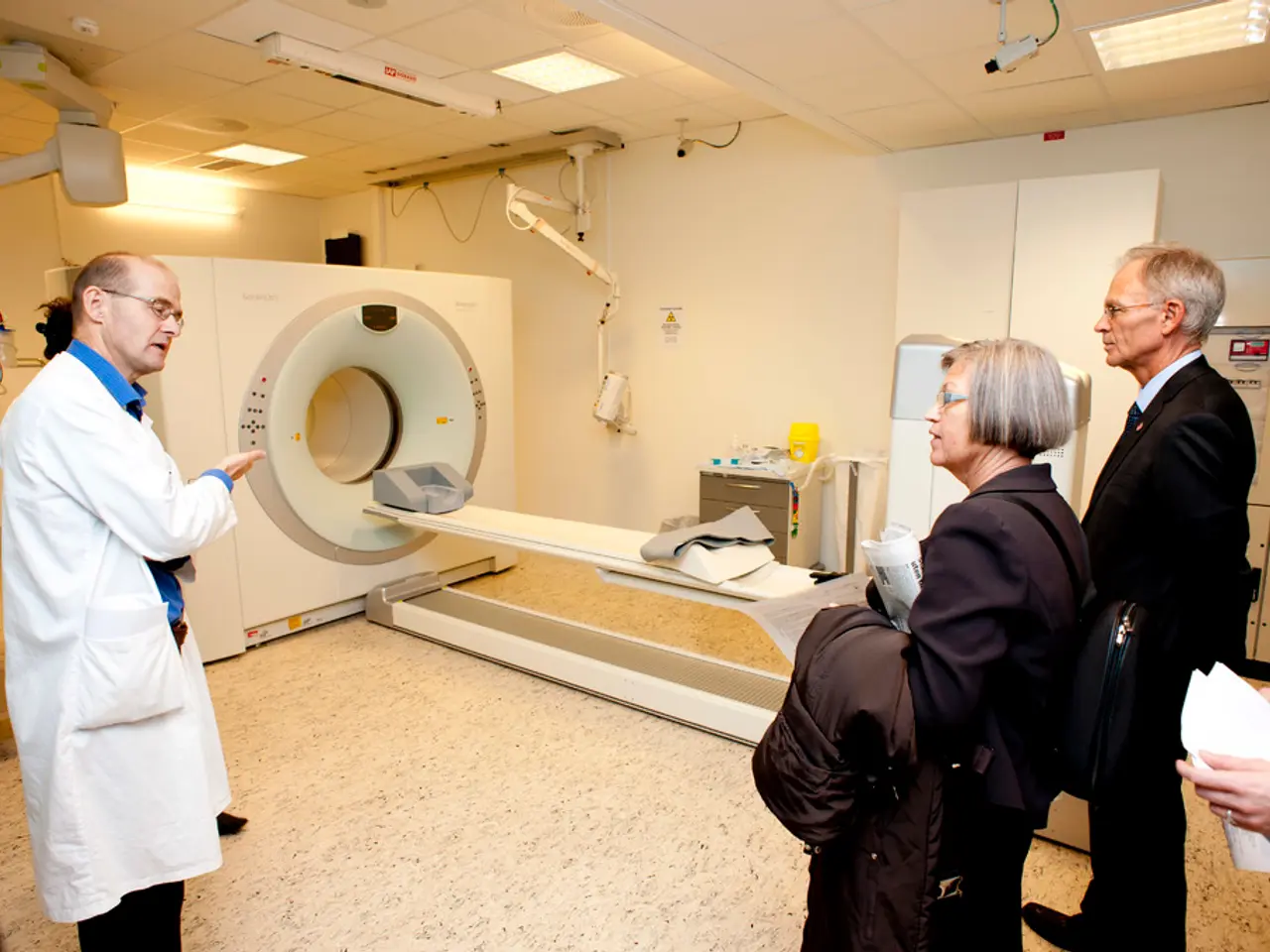Dexcom issues recall of over 700,000 Continuous Glucose Monitors (CGM) due to missing audible alarm feature.
In a significant development, Dexcom, a leading manufacturer of continuous glucose monitors (CGMs), has announced a Class I recall for its CGM receiver devices. The Food and Drug Administration (FDA) officially confirmed the recall on June 16, 2025, following an urgent medical device correction notice issued by Dexcom on May 12, 2025.
The recall was prompted by a manufacturing problem that may cause the receiver's speaker to lose contact with the printed circuit board, potentially leading to the failure of audible alarms. This defect could result in delayed or missed detection of severe hypoglycemia or hyperglycemia, posing serious risks such as seizures or loss of consciousness.
As of May 2025, Dexcom had received 112 reports of severe adverse events, including seizure, loss of consciousness, and other hypoglycemic or hyperglycemic symptoms, associated with the malfunction of the receivers.
Approximately 703,687 receivers were impacted by the recall, with more than 600,000 G7 receivers, over 36,800 G6 receivers, and tens of thousands of receivers for Dexcom’s One and One+ CGM systems affected.
Elise Reuter, a journalist who has covered Dexcom extensively, reported that the recall does not affect users who rely solely on Dexcom’s smartphone apps for glucose monitoring since the apps provide alerts independently of the receivers. The affected devices will still provide hypoglycemia or hyperglycemia alerts through other cues, such as vibration and visual prompts.
Dexcom has urged users to check their device serial numbers and contact their technical support for a no-charge replacement. The company also recommends regular testing of the receiver's speaker functionality, regardless of recall status, to ensure proper operation.
It is important to note that the recall does not affect people who use Dexcom's mobile apps for alerts and alarms. Previously, Dexcom's users were advised to check CGM glucose values regularly and to turn the receiver off and on.
In a related development, earlier this year, Dexcom issued a Class II recall for the Dexcom G6 touchscreen receiver, which may not provide high or low glucose alerts in rare situations.
Dexcom is asking users to return the affected devices and is offering replacements. Users are advised to stay vigilant and follow Dexcom's instructions to ensure the safety and efficiency of their CGMs.
[1] FDA Urgent Medical Device Correction: Dexcom G7, G6, One, and One+ CGM Receivers, May 12, 2025. [2] Dexcom Recall Affects Over 700,000 CGM Receivers Worldwide, June 16, 2025. [3] Dexcom Encourages Users to Check Receiver Serial Numbers and Contact Technical Support, June 17, 2025. [4] Dexcom Recommends Regular Testing of Receiver's Speaker Functionality, June 18, 2025.
- The FDA has officially confirmed a Class I recall for Dexcom's CGM receiver devices, issued on June 16, 2025, due to a manufacturing issue that may affect over 700,000 devices worldwide.
- The recall was prompted by a problem that may cause the receiver's speaker to lose contact with the printed circuit board, potentially leading to failure of audible alarms.
- This defect could result in delayed or missed detection of severe hypoglycemia or hyperglycemia, posing serious risks such as seizures or loss of consciousness.
- As of May 2025, Dexcom had received 112 reports of severe adverse events associated with the malfunction of the receivers.
- Dexcom has urged users to check their device serial numbers and contact technical support for a no-charge replacement, and recommends regular testing of the receiver's speaker functionality.
- The recall does not affect users who rely solely on Dexcom’s smartphone apps for glucose monitoring, as the apps provide alerts independently of the receivers.
- In a related development, earlier this year, Dexcom issued a Class II recall for the Dexcom G6 touchscreen receiver due to a problem that may cause it to not provide high or low glucose alerts in rare situations.




